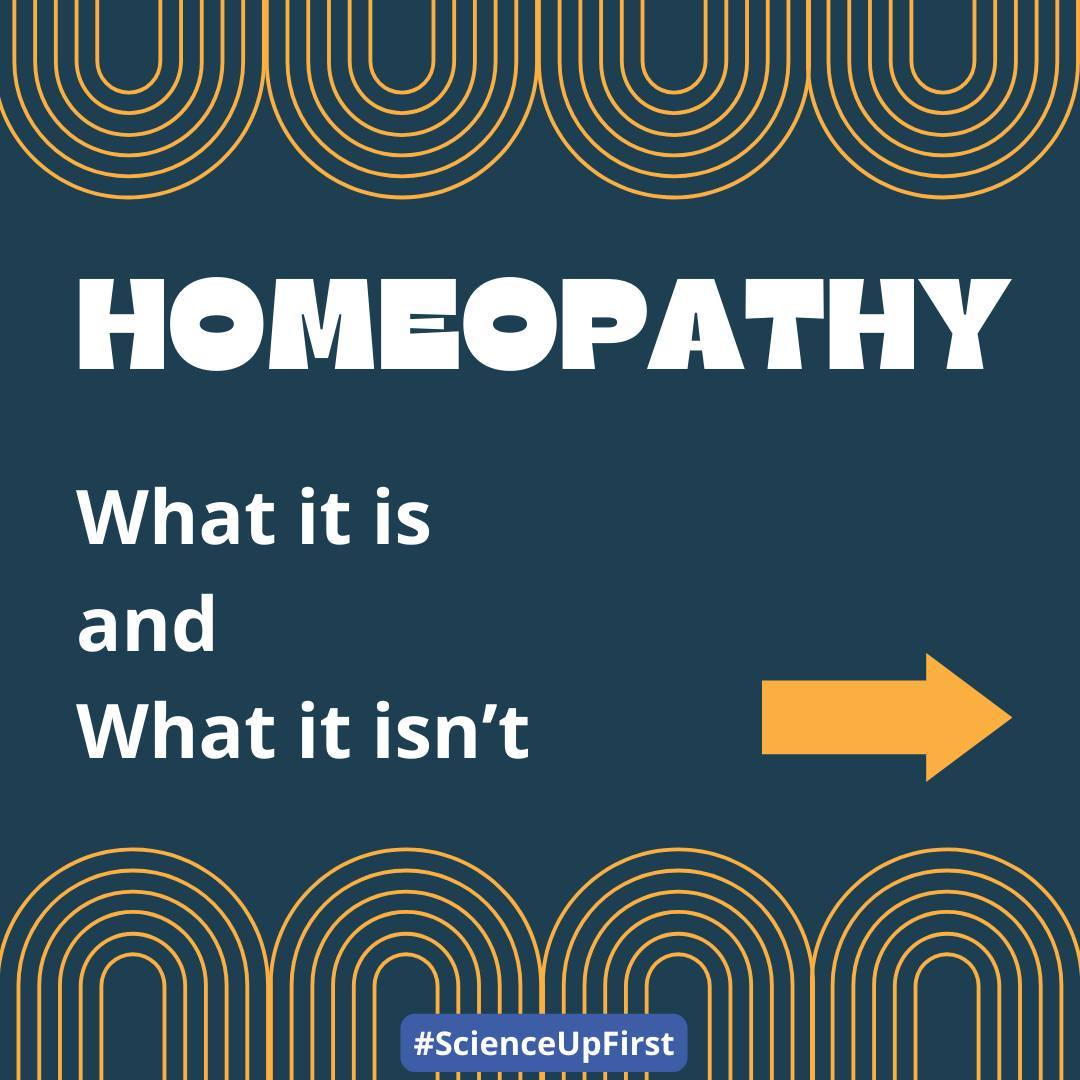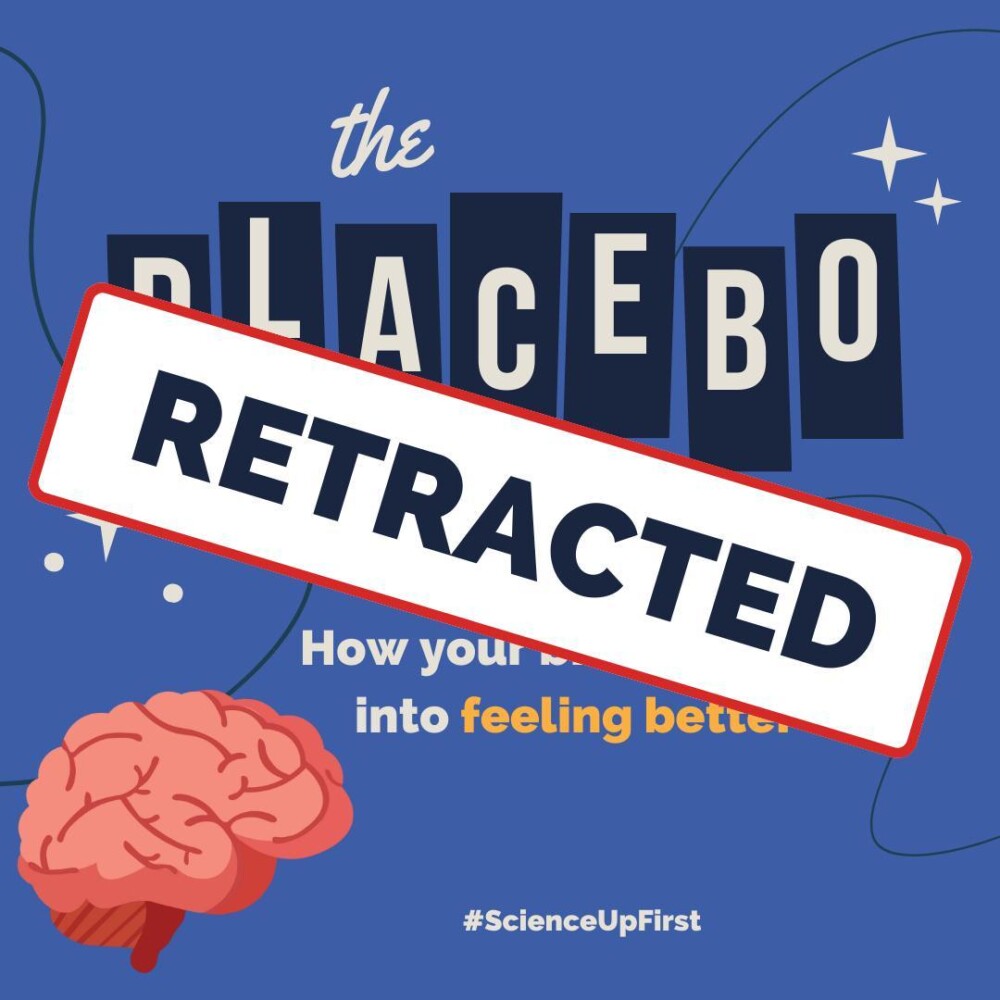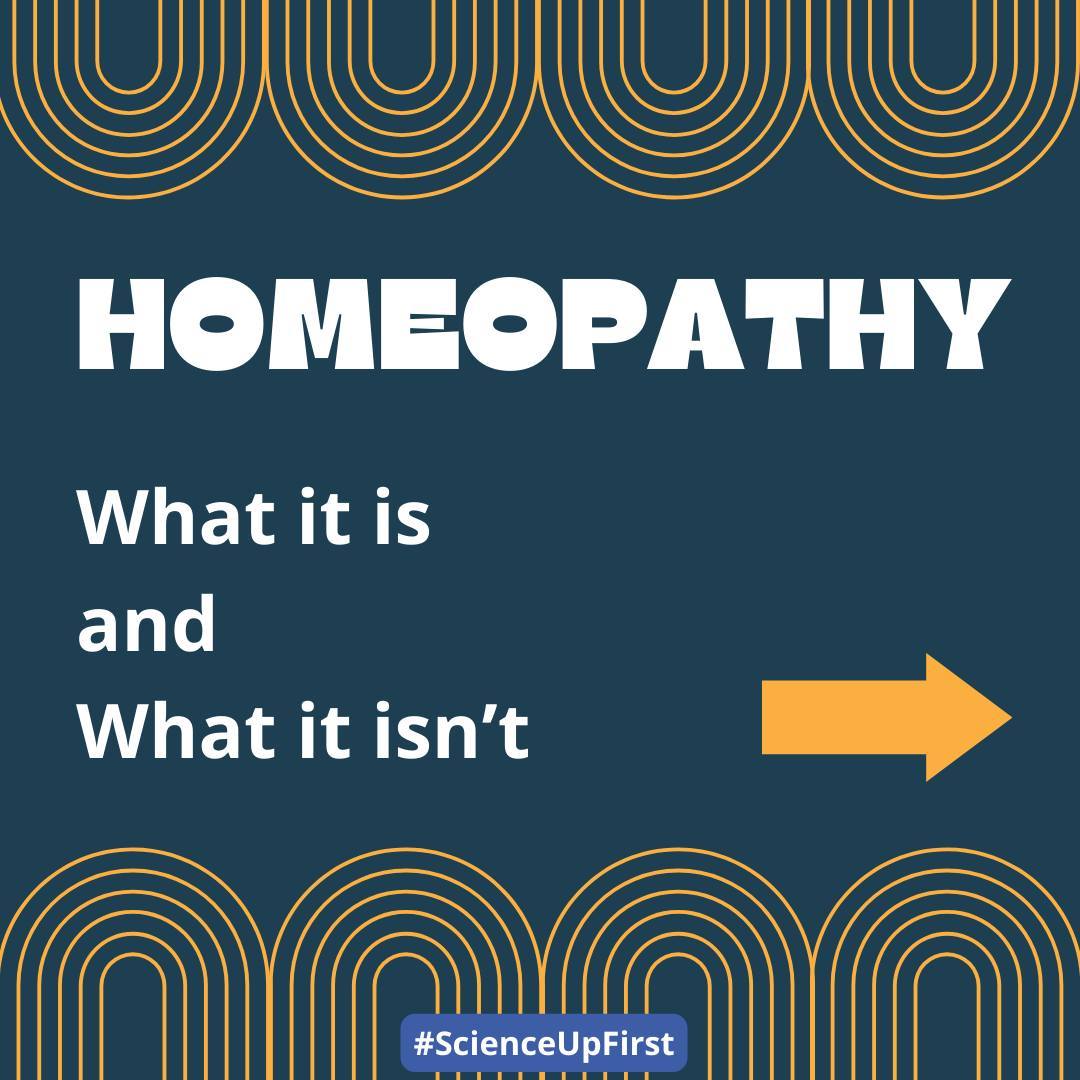
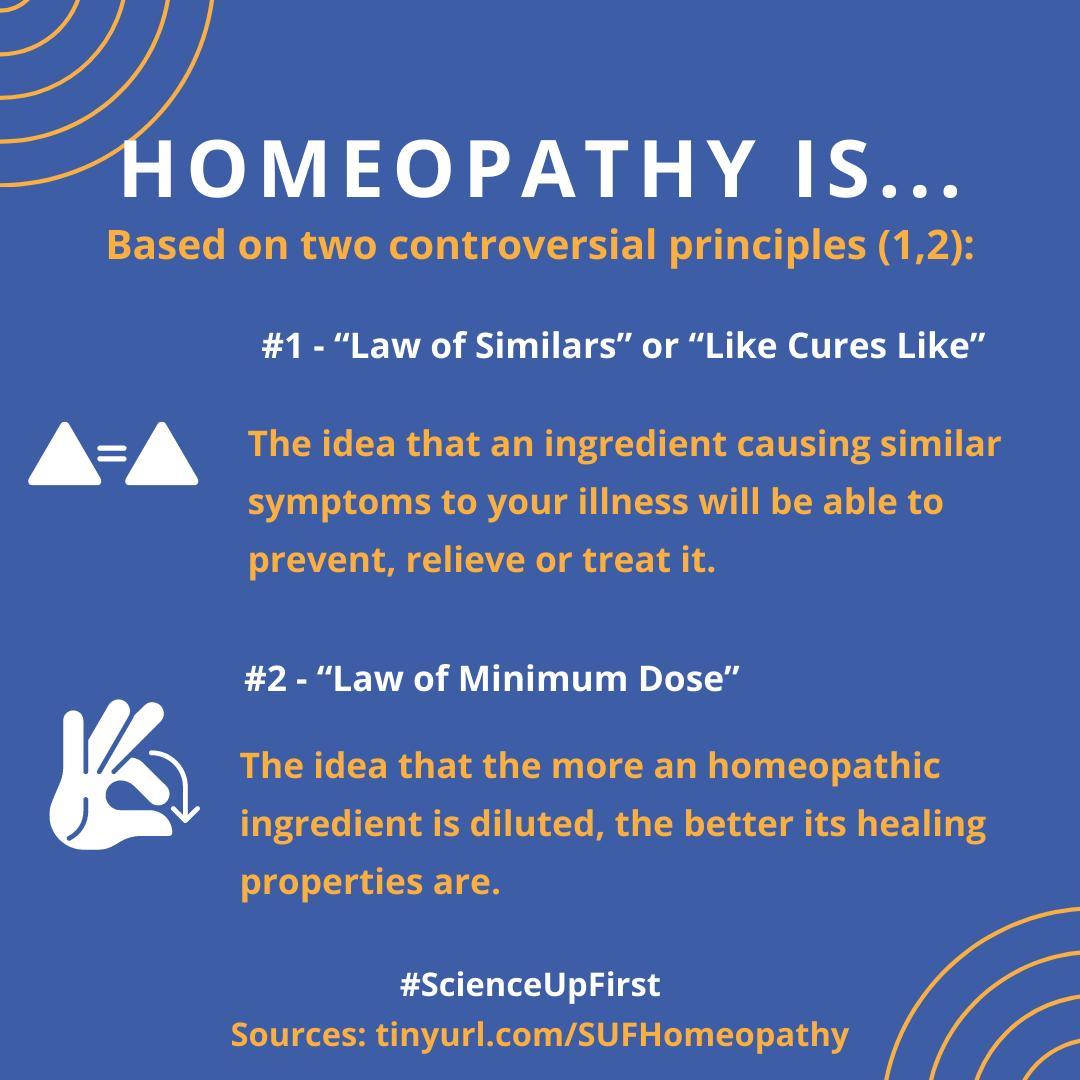
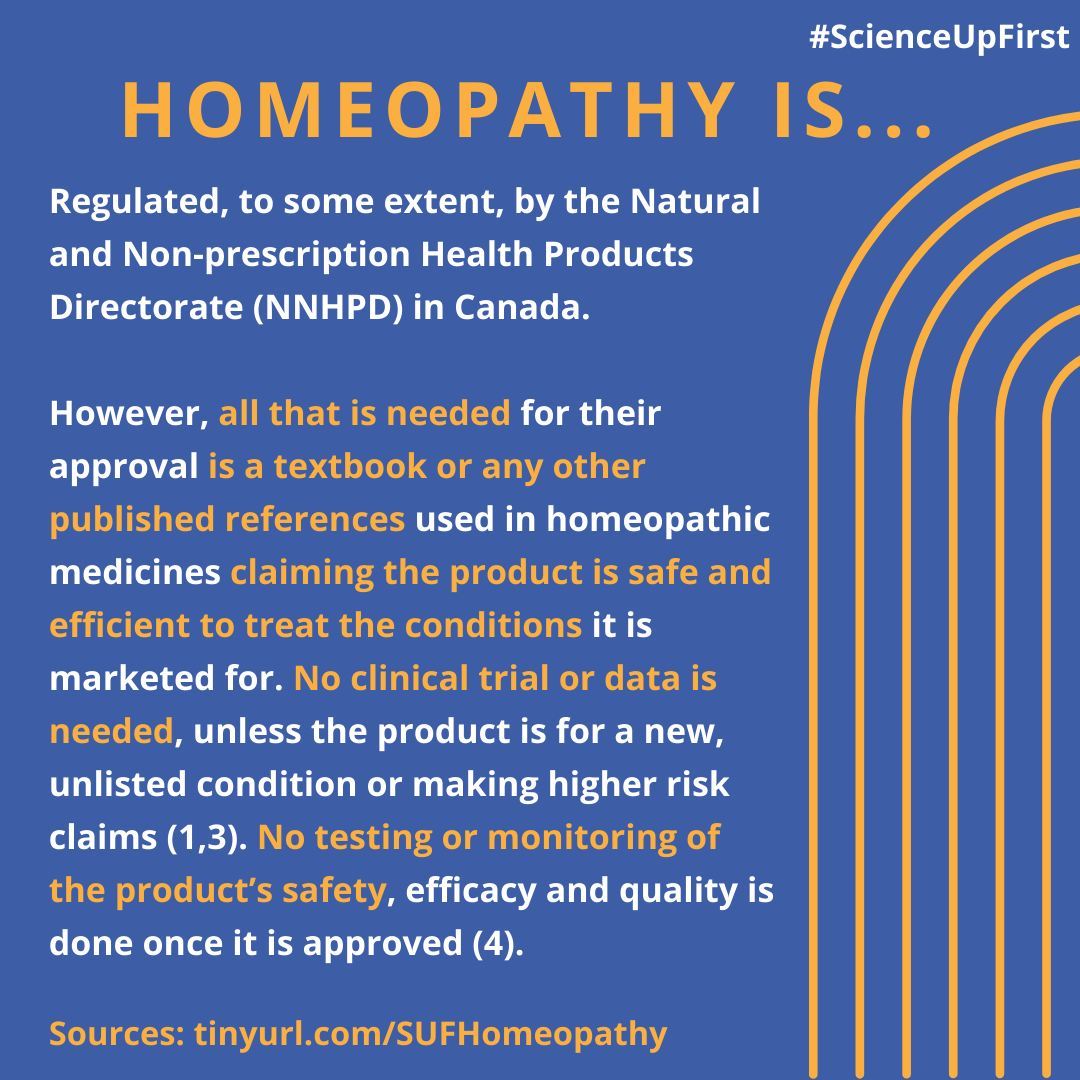
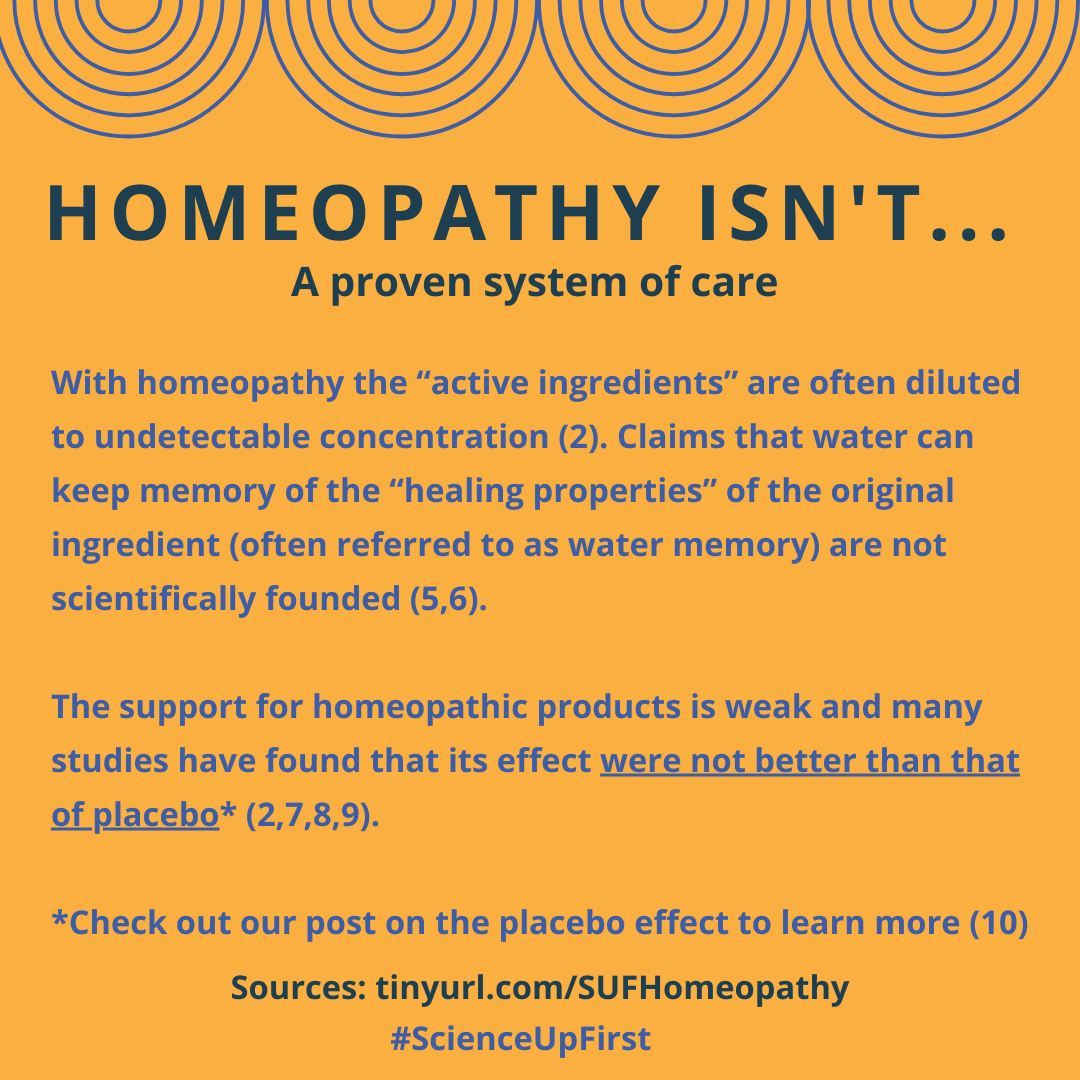
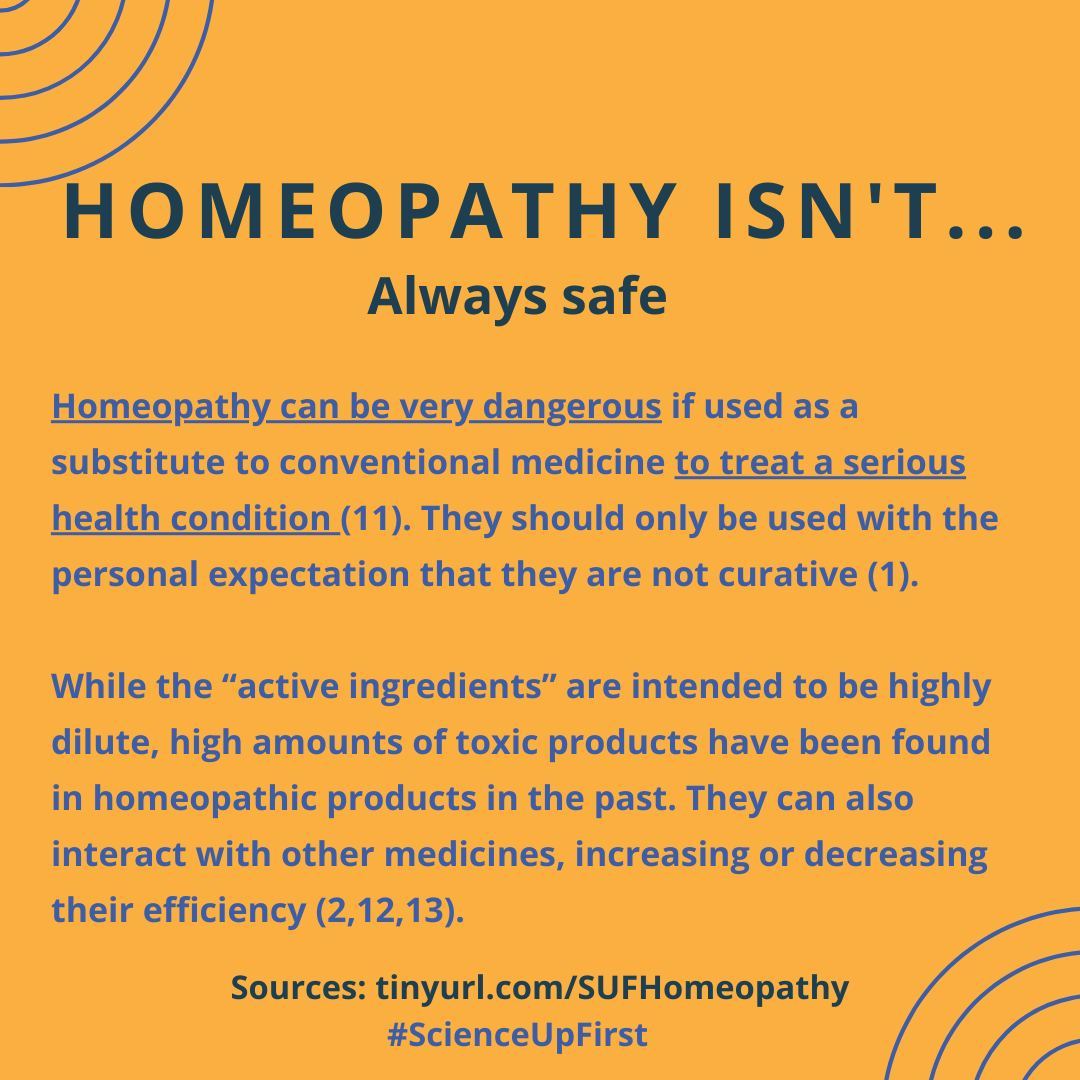
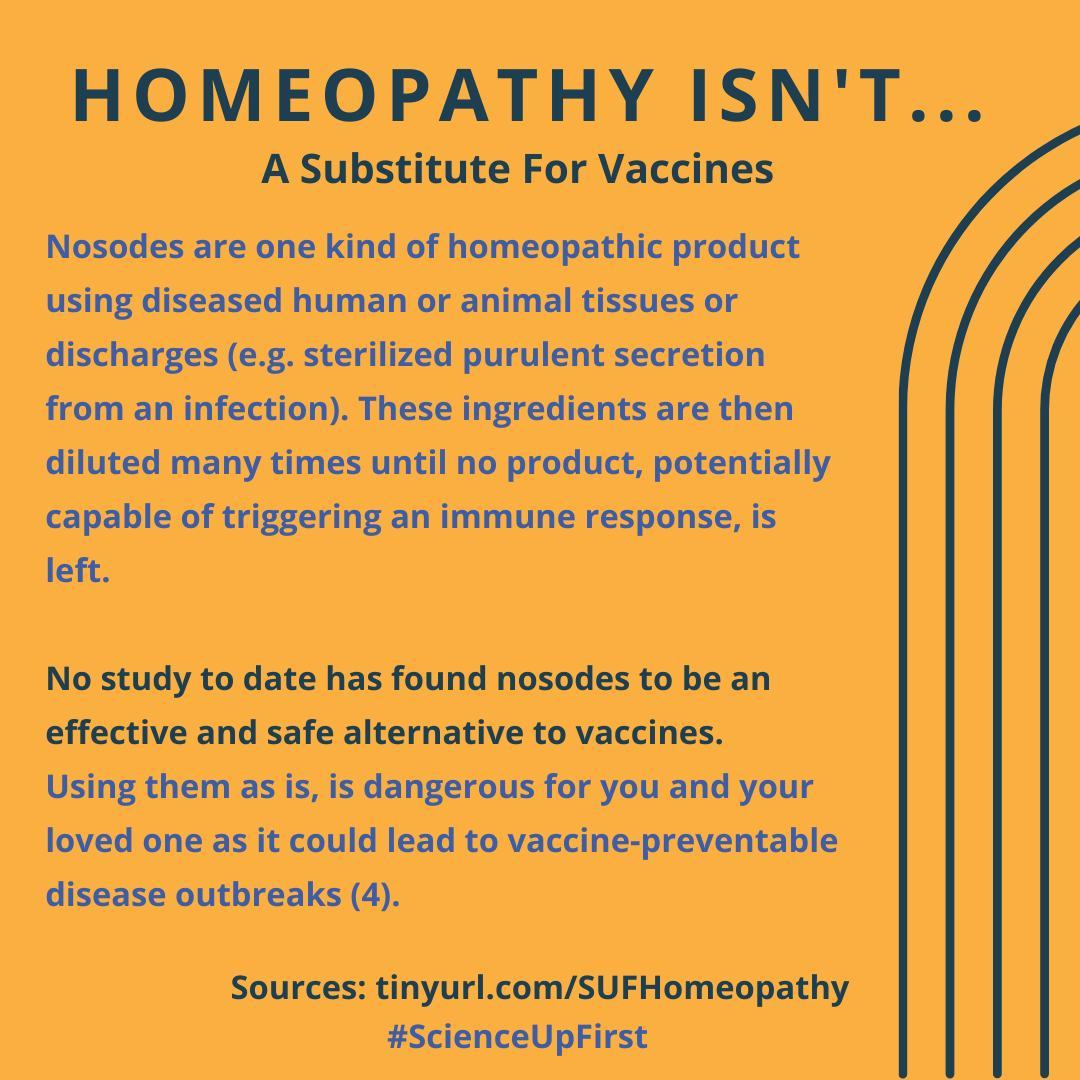
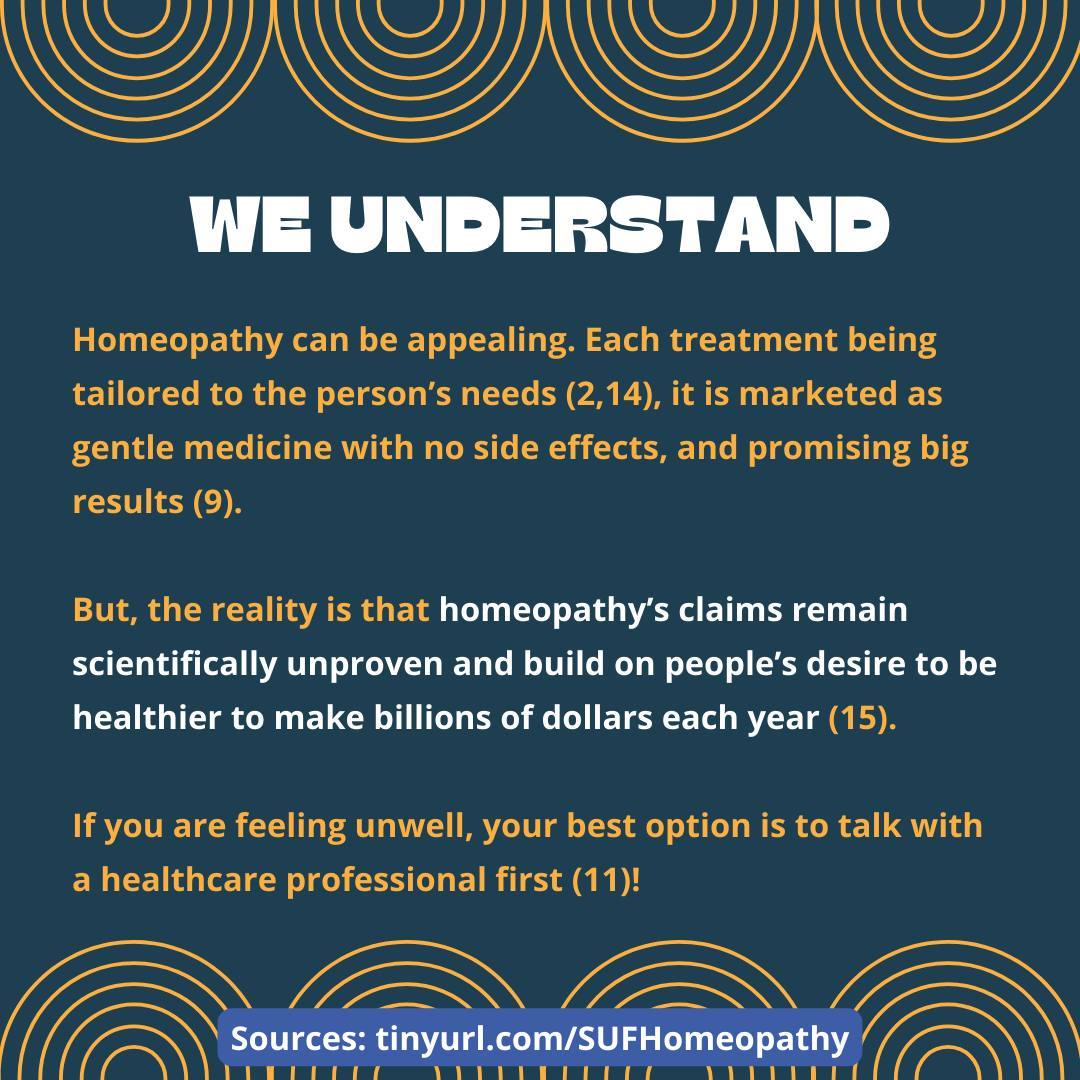
Homeopathy can be appealing as it is marketed to be tailored to everyone’s specific needs and as a gentle medicine. But it is also controversial and an unproven system of care. Here is why
- Controversial because it follows principles that don’t align with those of modern science.
- Unproven because most studies have yet to find any true benefit to them other than the placebo effect. Don’t get us wrong, the placebo effect can be very strong, but it doesn’t mean homeopathic products should be used to treat a serious health condition.
For these reasons, homeopathic products like nosodes should also never be used to prevent a serious health condition. Advertising these products as “cures” is severely misleading and can be very dangerous.
If you are feeling unwell, your best option is to talk to a licensed healthcare professional first.
Share our original Tweet!
Homeopathy can be appealing as it is marketed as a gentle medicine, tailored to everyone’s specific needs. But it is also a controversial, unproven system of care. Here is why #ScienceUpFirst
[1/13] pic.twitter.com/dxWIDJMGSv
— ScienceUpFirst | LaScienced’Abord (@ScienceUpFirst) October 4, 2022
View our original Instagram Post!
View this post on Instagram
- Information on Homeopathic Products | FR
- Homeopathy
- Evidence for homeopathic medicines | FR
- False Claims about Homeopathic Nosodes | FR
- What Is ‘Water Memory’? Why This Homeopathy Claim Doesn’t Hold Water
- The memory of water
- Articles Are the clinical effects of homoeopathy placebo effects? Comparative study of placebo-controlled trials of homoeopathy and allopathy
- Homeopathy Information
- Homeopathy—where is the science?
- The Placebo Effect | FR
- Homeopathy
- FDA warns consumers about homeopathic teething products
- Potentially toxic teething tablets still on shelves in Canada
- What is it about homeopathy that patients value? And what can family medicine learn from this?
- Homeopathic Products Market Size to Hit USD 19.7 Bn by 2030

